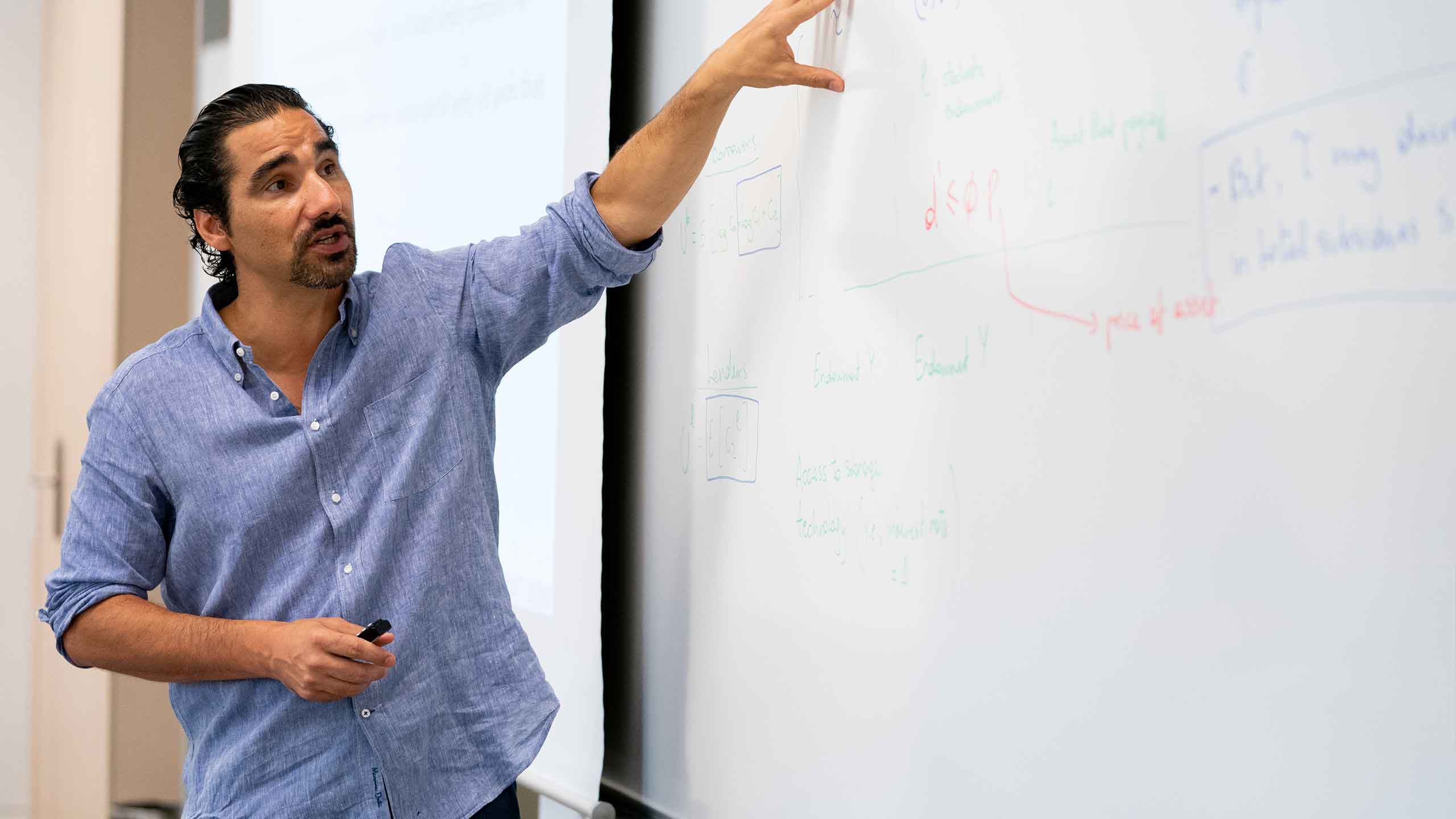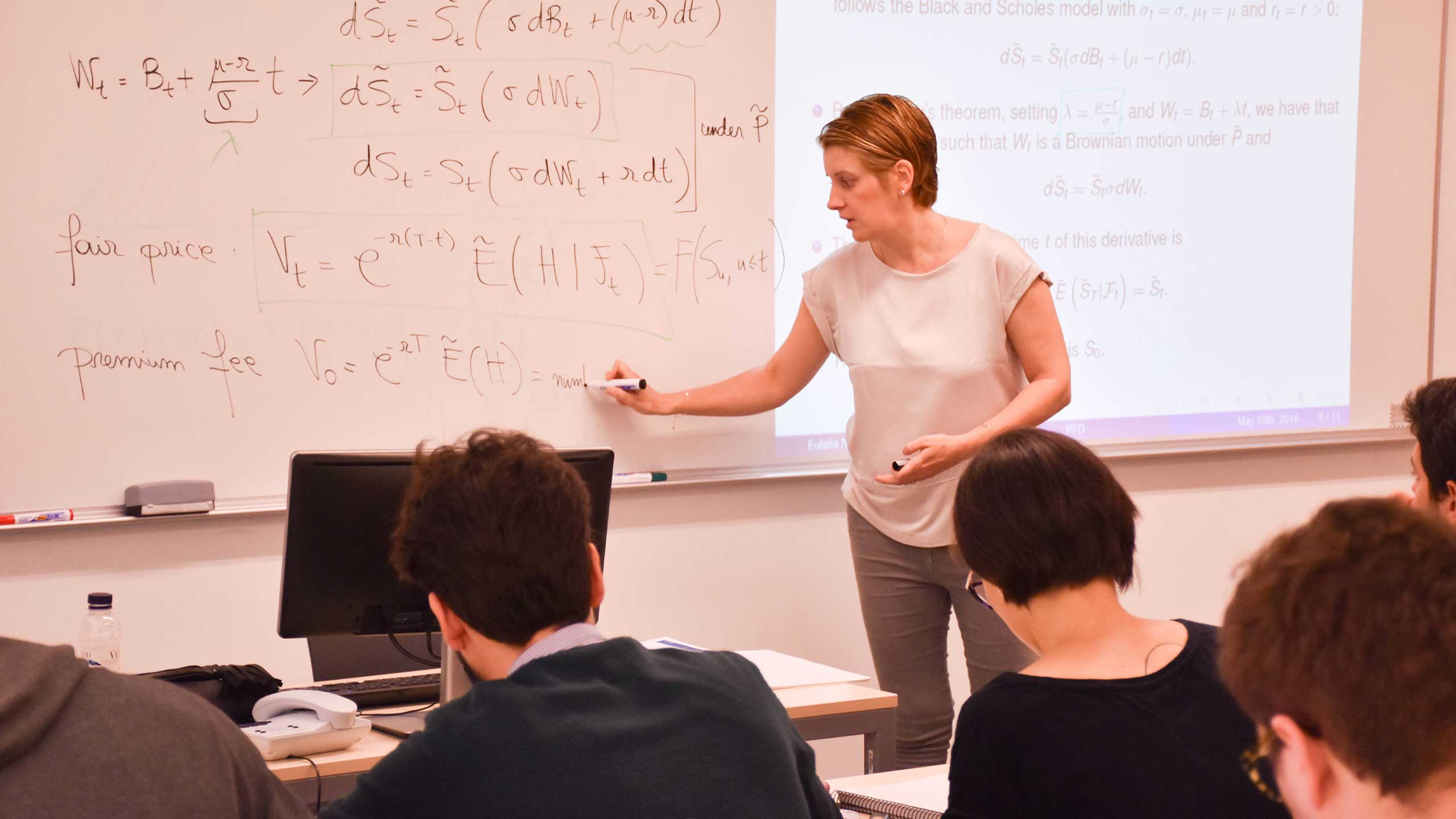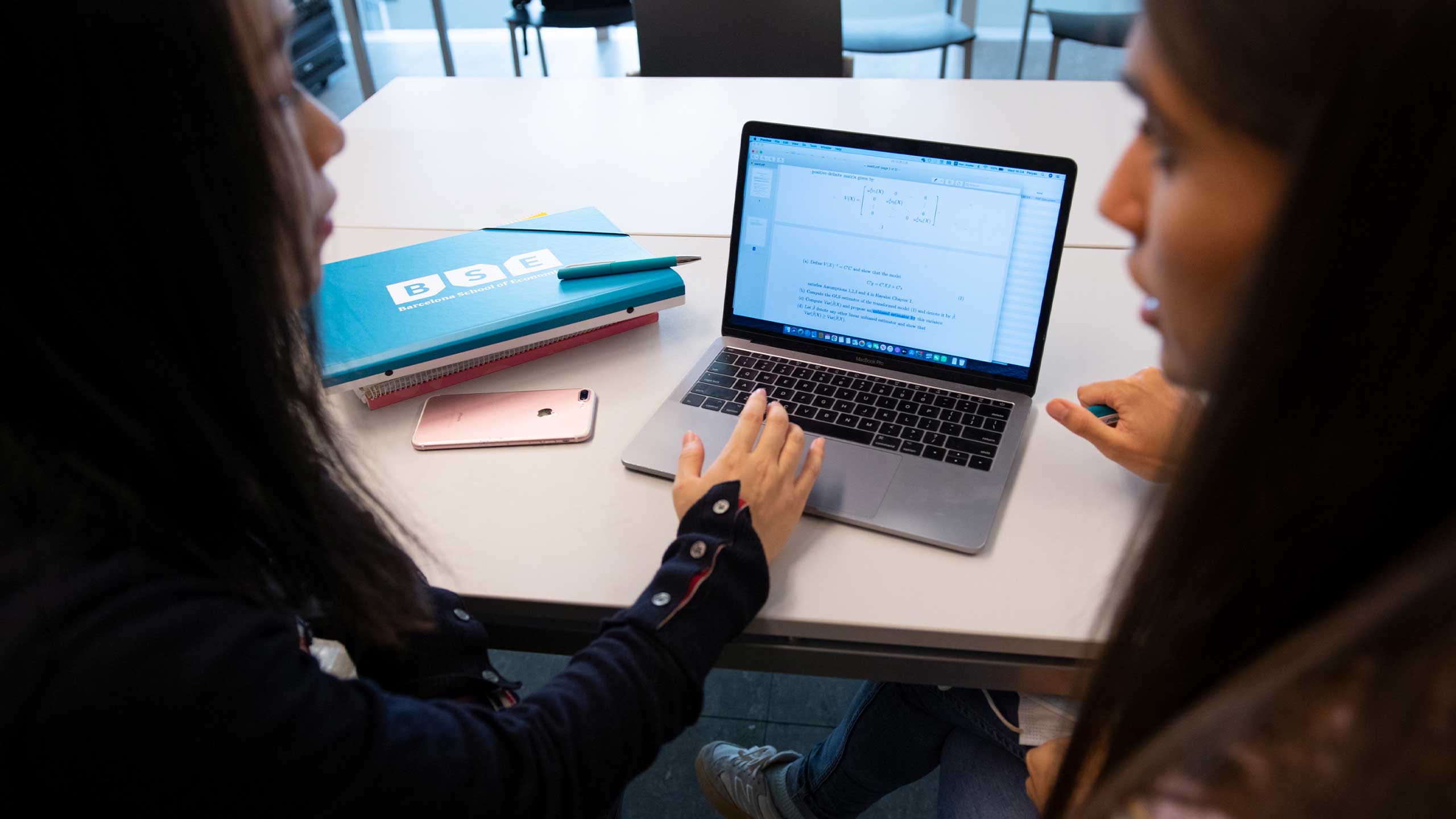Master's Degree in Economics and Finance
A Master’s Degree from the Barcelona School of Economics is an intensive nine-month program with faculty who are top-ranked researchers in the cosmopolitan city of Barcelona!

Discover the Master’s programs in Economics and Finance



Who studies a Master’s in Economics and Finance?
If you are passionate about learning the key elements of Economics and Finance, one of these Master’s programs is for you!
- Students who have previously studied economics, mathematics, finance or engineering.
- Analysts or professionals looking for a postgraduate degree with advanced tools in quantitative economics.
- Aspiring PhD students.
Why study a Master’s at BSE
Top 3 research department in economics within Europe (RePEc).
Prestigious Economists including Nobel Laureates guide the development of BSE academic programs.
95% of students have a job or enter further education within 6 months of graduating.
Study in the vibrant city of Barcelona.
Quality accreditations
Accreditation seals for the BSE Master’s Degree in Economics and Finance from the Quality Agency for the Catalan University System (AQU):
Admissions Process
Requirements:
- An undergraduate/bachelor/grado/laurea, or equivalent degree from an accredited college or university (for Bologna degrees, a minimum of 180 ECTS are required).
- University diploma in Economics, Finance, Engineering, Mathematics, Statistics, or Business Administration. Students with academic backgrounds in other subjects will be considered.
- An advanced level of English language skills: TOEFL score of 90 or above; IELTS Academic Test score of 6.5 or above; Duolingo English Test 120 points.
Candidates will also be evaluated on the following admission criteria:
- Outstanding academic record.
- Quantitative skills.
- Reference letters.
Frequently asked questions
If you have any further questions about studying a Master’s at BSE, please contact our Admissions team.
Which rankings is the Barcelona School of Economics listed in?
Here you will find the Rankings BSE is listed in, including QS and RePEc
Can I apply to more than one program?
Yes, you can apply to up to three different programs for the same academic year.
Is tuition fee funding available?
You will automatically be considered for tuition fee funding when you apply.
What level of English do I need to have for this Master’s?
An advanced level of English is required, we accept the following as proof: TOEFL 90-100, IELTS 6.5 or Duolingo English Test 120 points
Do I need to take the GRE General Test to apply?
The GRE General Test is highly recommended, but optional
Is there an application fee?
There is a €60 fee for a single offer application or €100 fee for a multiple offer application.
Are BSE Master’s taught in English?
Yes, all BSE Master’s programs are taught in English. You do not need to speak Spanish to apply.
Economics. All rights reserved.





